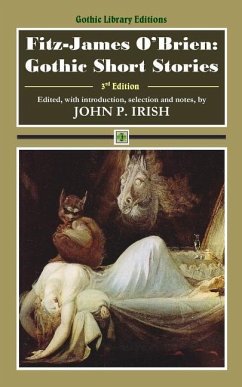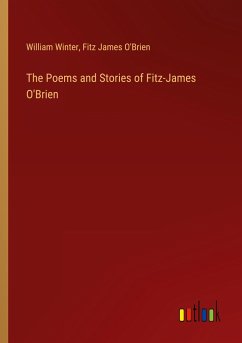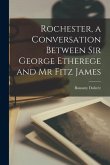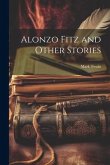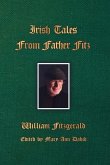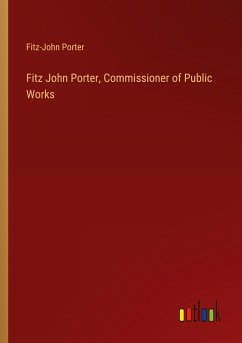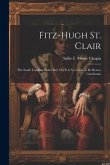"Fitz-James O'Brien is the most important figure after Poe and before Lovecraft in modern horror literature . . . and [was] imitated by such authors as Ambrose Bierce, Guy de Maupassant, and F. Marion Crawford." Jessica Amanda Salmonson "Fitz-James O'Brien was the most distinguished short story teller between Edgar Allan Poe and Bret Harte." Edward J. O'Brien "[When O'Brien] turned to science fiction & fantasy he begin to display the full force of his truly outstanding talents." Sam Moskowitz "O'Brien's early death undoubtedly deprived us of some masterful tales of strangeness and terror." H.P. Lovecraft Completely updated and revised from the 2nd edition. This is the best single volume edition of O'Brien's Gothic short stories in print and the only one based entirely on O'Brien's original texts. It is also the only edition to include the complete "Fragments from an Unpublished Magazine," which contains one of O'Brien's best and early Gothic tales - "One Event." A tremendous number of European immigrants came to the United States during the 1840s and 1850s; many came in search of new economic opportunities. Fitz-James O'Brien (1826/8-1862) came to America (originally from Ireland) in 1852 looking to make his way in the literary world. With impressive recommendations in hand, he had no trouble finding work and immediately started editing and publishing stories in some of the most influential magazines of the day (e.g., Harper's New Monthly Magazine, The American Whig Review, Putnam's Monthly Magazine, and The Knickerbocker, or New-York Monthly Magazine). When the Civil War broke out, in 1861, he joined the Union army and was fatally wounded in 1862. O'Brien is one of the most important American writers in between the first and the second half of the nineteenth-century. He serves as an important literary bridge between Romanticism and Realism. His short stories follow the same natural and supernatural horror, philosophical observations of human nature, and social criticisms as those of the great American triumvirate - Irving, Hawthorne, and Poe. It was Poe that had a particularly strong influence on his writing, but the influence of all three of these writers can be seen in his stories. H.P. Lovecraft said of O'Brien, in his important survey of supernatural literature, Supernatural Horror in Literature, "O'Brien's early death undoubtedly deprived us of some masterful tales of strangeness and terror." This collection will be the most complete one-volume edition of O'Brien's works to date. Included in this edition are all his important stories, the ones that he was most known for during his lifetime (e.g., "What Was It?" "The Diamond Lens," and "The Wondersmith"), as well as others that have never been published since their initial publication in the 1850s. This edition contains about half his total published short stories during his lifetime. All aspects of O'Brien's Gothic will be represented in this edition, the supernatural, urban, fantasy, tragedy, and even a few of O'Brien's comedies. This volume will be of interest for courses on American Studies as well as courses focusing on Romantic and Gothic Literature, Horror, Science Fiction, or the Humanities. This 3rd edition is completely updated and revised from the 2nd edition. A new introduction by the editor, situating O'Brien's stories within their historical context, has been included. As well as the interesting illustrations of Ferdinand Huszti Horvath, from the 1932 edition of O'Brien's works. Also included in this edition are editorial notes on the stories from O'Brien's only biographer, Francis Wolle. New selections have been added and all texts have been drawn from the five-volume Collected Writings of O'Brien, currently being edited and published from A Bit O'Irish Press. The first three volumes of The Collected Writings of O'Brien are now available from A Bit O'Irish Press.
Bitte wählen Sie Ihr Anliegen aus.
Rechnungen
Retourenschein anfordern
Bestellstatus
Storno

